You have /5 articles left.
Sign up for a free account or log in.
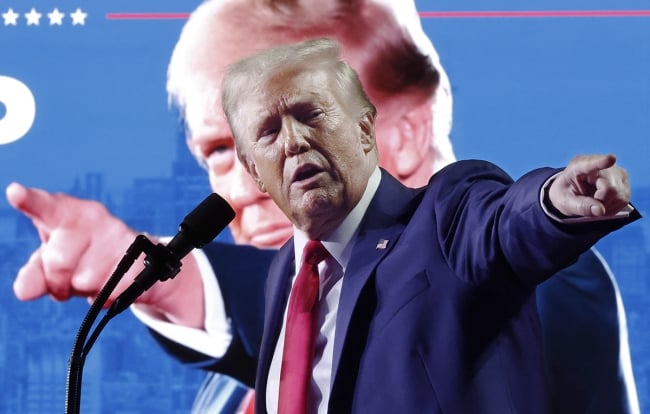
Trump spoke on Nov. 5 at a campaign rally in Grand Rapids, Mich.
Chip Somodevilla/Getty Images
As Donald Trump returns to the White House on this Martin Luther King Jr. Day—with a GOP Congress behind him, a vice president who’s called universities “the enemy” and a WWE powerhouse tapped as his education secretary—it’s fair to say that the only certainty for U.S. higher education is uncertainty.
Trump’s attention to the sector during his first term was fleeting. He didn’t make higher ed a central issue in his protracted campaign for re-election, either, although he did call for axing the Education Department, firing accreditors, deporting campus protesters, eliminating DEI programs and launching a national online university.
His conservative allies have plenty of plans at the ready. Project 2025 has called for radical reform to reduce the federal role in higher ed and hand power to the states. GOP members of Congress will be eager to pass pent-up bills they couldn’t get through in the past four years—some welcome by many in higher ed, others stirring broad alarm.
And while Republicans are raring to reform higher ed, the sector limps into Trump Part II in a weakened state, scarred from plummeting trust in the value of a college education as well as scalding political rhetoric, congressional probes into campus antisemitism, state laws banning DEI programs and dictating curriculum changes, and the politicization of boards and presidencies—not to mention the imminent arrival of the long-dreaded demographic cliff.
It might sound like a grim state of affairs. But the priorities of the new administration and Congress—and how they might affect colleges and universities for both good and ill—are anybody’s guess at this point. So is their ability, or political will, to pass and implement sweeping reforms.
Not everyone is guessing, though. This is academia, after all—experts know things, or at least have highly educated guesses. So we asked a range of prominent leaders and scholars to identify their highest hope and greatest fear for the sector in the second Trump administration. No consensus emerges—again, after all, this is academia. But their collective insights shed some unexpected light on both the challenges and opportunities Trump's second four years may present.
Some of their fears might not surprise you. But some of their hopes probably will. The responses have been edited for clarity and concision.
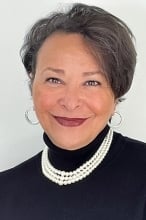
Paulette Granberry Russell
President of the National Association of Diversity Officers in Higher Education
My highest hope is that the administration respects and upholds the autonomy of higher education institutions and does not attempt to undermine them further.
We have witnessed continual attacks by the states on institutional autonomy, academic freedom and free speech. I hope that federal policy will not extend these attacks through the elimination of critical departments, drastic changes via executive orders or significant reductions in funding to the Departments of Education, Justice and Health and Human Services—agencies whose resources and policies underpin equity, inclusion and access. For institutional leaders, courage and consistency in prioritizing equity, access and opportunity will be crucial to preserving the transformative mission of higher education.
My greatest worry is that inclusive strategies and interventions, many catalyzed by landmark legislation like the Civil Rights Act of 1964 and Title IX in 1972, will stall—or worse, regress. Federal policy modeled after restrictive state-level legislation would disproportionately harm individuals and communities that have historically faced discrimination. Efforts to dismantle programs aimed at achieving more equitable outcomes—programs that have yielded measurable benefits for generations—would erode the progress made in expanding access and success for underrepresented students. The implications of such rollbacks would extend beyond higher education institutions, threatening the broader economy and society. Diverse, equitable campuses don’t just benefit individual students; they create a pipeline of leaders and innovators essential for a competitive global workforce.

Miriam Feldblum
Executive director of the Presidents’ Alliance on Higher Education and Immigration
In the coming years, there will undoubtedly be harsh immigration and border policies, increased deportations and some restricted opportunities to stay and work in the U.S. for those with temporary or fragile immigration statuses. Yet my greatest hope is that we recognize, solidify and even expand real opportunities to find common ground, including ways for higher ed institutions and campuses to support these students and other campus members. President Trump recently said that he wants to work to find a way for Dreamers to stay and keep contributing. He has also suggested giving green cards to international student graduates and said he supports H-1B visas. Higher ed leaders and institutions should seize these opportunities for common ground.
My greatest fear, meanwhile, is that America squanders the potential of Dreamers, immigrant-origin and international students through restrictive policies. The U.S. is facing an immense talent imperative to sustain our global economic competitiveness, drive innovation, fill workforce shortages and produce a trained and dedicated workforce. Higher education institutions are essential to meeting these challenges. And immigrant-origin students—including Dreamers and refugees, and other first- and second-generation immigrant students—along with international students make up over a third of all students in higher education. The loss of this talent due to misguided immigration policies, fear and targeted enforcement actions would be self-defeating for our nation’s future.

Barbara Snyder
President of the Association of American Universities
President Trump has repeatedly said he wants to make America great and keep us ahead of China and other competitor nations. I am optimistic that he will support policies and investments that ensure the United States continues to be the world’s leader in scientific research. The president and Congress can secure that position by both increasing our public investments in cutting-edge research and by promoting policies that make it easy for the world’s best and brightest technological and scientific minds to study, work and stay here and advance U.S. innovation and economic growth.
My single greatest fear would be that some might try to convince the president to pull back these investments in America’s greatness and close ourselves off from the global talent and knowledge that has helped make our country great. I hope that he and Congress will resist that shortsightedness and will choose to recommit our country to the government-university research partnership that has made us the world’s strongest and most prosperous country.
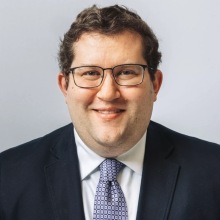
Jeremy Young
Director of state and higher education policy at PEN America
Over the past four years, a group of lawmakers and conservative think tanks have waged merciless war on free expression in the higher education sector. Fifteen states have passed laws that censor ideas on college and university campuses, and the new federal administration seems poised to expand this ideological war on higher education into new arenas: weaponizing federal research funding, Title VI enforcement and accreditation to restrict ideas on campus while engaging in endless bullying and jawboning of university leaders to force “voluntary” closures of diversity offices and academic programs.
My fear is that the new administration will carry forward this destructive playbook, actively suppressing politically disfavored viewpoints on campus and destroying the ideological autonomy of higher education institutions. But my hope is that it will step back from the abyss. Scientific discovery, cultural creation, the fostering of critical thinking skills employers seek in new graduates and the promotion of democratic pluralism among the rising generation—these outcomes are only possible if colleges and universities remain places where all ideas are open for debate, not just those the government agrees with.
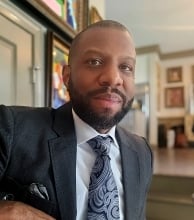
Ivory Toldson
Ivory Toldson
Howard University professor, editor in chief of The Journal of Negro Education and former executive director of the White House Initiative on Historically Black Colleges and Universities
Under a second Trump administration, my highest hope is for the continued growth and expansion of HBCUs. These institutions have historically enjoyed bipartisan support, and even Project 2025 acknowledges the importance of providing federal support to historically Black and tribal colleges. Compared to many of the highest-ranked predominantly white institutions (PWIs), HBCUs enroll a higher percentage of U.S. citizens, which may shield them from challenges associated with more restrictive immigration policies. Moreover, as race-conscious admissions policies are rolled back, HBCUs could play a critical role in supporting Black students who may be denied opportunities at PWIs, further solidifying their importance in U.S. higher education.
My greatest worry lies in the challenges to diversity, equity and inclusion programs, which could leave Black students at PWIs with fewer resources to address persistent issues of equity, access and institutional racism. Without these programs, Black students may face increased racial hostilities with fewer protections and support systems. Additionally, efforts to weaken or eliminate the Education Department could severely threaten funding for lower-income students, particularly through federal student aid programs. Combined with growing anti–higher education attitudes, these threats could place colleges and universities under heightened scrutiny, hurt enrollment and jeopardize the future of higher education as a whole.
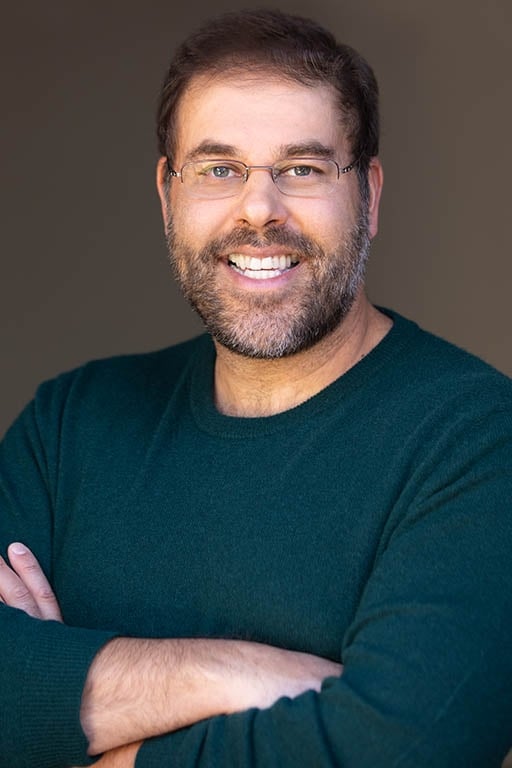
Kerry Howell
Jeremi Suri
Mack Brown Distinguished Chair for Leadership in Global Affairs and professor of public affairs and history, University of Texas at Austin
Republican politicians love to attack the elitism of higher education, even as they leverage their own elite pedigrees for money and power. Republicans do not really want to destroy higher education; they want to own it for themselves. I expect that the next four years will make this clear and open a wider discussion about who should have access to higher education and how we can broaden it for those who feel left out. So far, Republicans have relied on attacking DEI and “woke” culture, but what do they want to replace it with on college campuses? They cannot go back to the white male–only institutions of the early 20th century. As Republicans are forced to articulate a coherent vision for access in higher education, I expect a more open and useful conversation that will bring us back to discussing diversity and affordability—not largely in terms of race and gender, but in terms of class and geography and family history. This will still be a difficult discussion, but one that might be more substantive, complex and even useful.
Republican politicians have also promoted a new “civics” agenda in higher education, based on an unproven claim that universities have abandoned the subject matter. The push for civics has meant more traditionalism and patriotism, less creativity and criticism. But that is a difficult agenda to take very far. If Republicans want universities to study more Madison, Jefferson and Lincoln, how can they avoid more (not less) study of pluralism, separation of church and state, and civil rights—the core issues for these most traditional historical figures? Republican advocacy for civics education must grapple with the complex questions that many Republicans wish to avoid. A serious discussion of civics in higher education will make this clear in coming years, and it will force these programs to widen their agenda or retreat into niche enclaves on campus. Most donors will prefer the former, which might build bridges with ecumenical faculty and students.
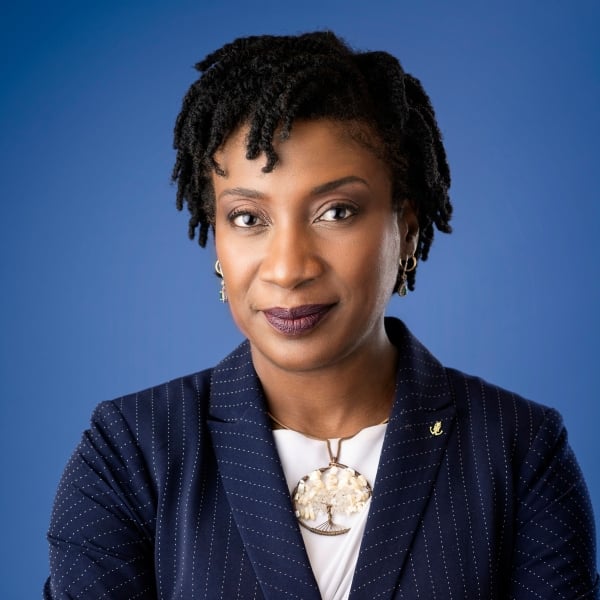
Nicole Smith
Chief economist at Georgetown University’s Center on Education and the Workforce
My single highest hope is for a renewed focus on workforce development and career readiness. Amid growing debates about the value of higher education, they have remained key priorities on the Trump platform. This focus presents opportunities for higher ed institutions to continue to innovate and expand programs that align closely with labor market demands. Vocational training, apprenticeship programs and technical education have been central to Trump’s agenda, providing a foundation for colleges and universities to build stronger partnerships with industries. This can drive innovation in areas such as competency-based learning, stackable credentials and enhanced internship opportunities. By equipping students with practical skills and clear career trajectories, higher education can continue to reinforce its role as a key driver of economic mobility—a topic sure to be on the minds of leaders in this new administration.
My greatest worry for the sector? Poorer outcomes for historically marginalized students, with no way to record it. Federal support for diversity, equity and inclusion initiatives, as well as academic research, is likely to be withdrawn entirely under the Trump administration. Efforts to defund or restrict DEI programs—particularly in public institutions—may intensify. These restrictions could also lead to the politicization of academic research, with areas like intergenerational mobility in education and income, gender equity and any evaluations by race or ethnicity potentially seeing funding reductions or shifts in priority. Such changes risk creating substantial obstacles for institutions committed to fostering inclusive environments and conducting research that addresses critical societal issues. For Black professionals in higher education, this presents a dual challenge: preserving DEI efforts in the face of external resistance while defending academic freedom in a climate increasingly marked by skepticism and distrust of research.

Sherene Seikaly
Associate professor at UC Santa Barbara and facilitator of the Faculty for Justice in Palestine network
My highest hope is that the Trump administration does not engage in repression, securitization, censorship and attenuation of higher education. My greatest worry is that the Trump administration will escalate the repression of social movements on campus, and in particular the movement standing with Palestinian liberation and political rights.
Miriam Elman
Executive director of the Academic Engagement Network
With alarming incidents of antisemitism occurring on campuses nationwide and beleaguered Jewish students increasingly reporting that they’re being harassed, bullied and marginalized, Donald Trump’s return to the White House is likely to result in better days ahead. Trump has already warned universities to expect a tougher stance from his administration, including the possible loss of accreditation and federal support, if they fail to address the rising level of antisemitism in their institutions. Under Trump, we may actually see several universities that are deemed in violation of civil rights law get their federal funds fully or partially cut off for not taking antisemitic bigotry and harassment seriously. This will be consequential not only for the affected schools, but will send a strong signal to other universities that antisemitism won’t be tolerated.
Tougher OCR [Office for Civil Rights] settlements are very likely coming down the pike, which is what many Jewish students, faculty and staff are hoping for. But we should be worried that at many schools there soon may no longer be adequate staffing to effectively address and combat antisemitism. With a second Trump administration, a Republican Congress and new Education Department leadership, we’ll see more diversity programs shuttered. For the Jewish community on campus, that’s going to mean a mixed bag. After all, it’s hard to see how antisemitism awareness training and educational programming will be rolled out if the staff needed to organize and facilitate these programs no longer have their jobs. To be sure, some poor DEI trainings exacerbate divisions and have done a terrible disservice to Jews on campus. Done well, though, these programs can benefit Jewish and all campus communities.

Kenneth Stern
Director of the Bard Center for the Study of Hate
I worry about a political attack on higher education and its effect on students and the ability of faculty to teach. Are students who are refugees from places like Syria, Ukraine, Afghanistan and elsewhere going to face deportation? Are we going to see 18-year-olds deported because of how they view the war in Gaza? Will administrators, fearing overly aggressive Title VI cases, opt to suppress speech and academic freedom? No university should tolerate students being harassed or intimidated or bullied. But I fear that the new Congress and administration are going to draw lines not around actual safety but emotional safety, punishing universities that allow demonstrations with political expressions that some detest.
Vice President–elect JD Vance said that, as in Victor Orbán’s Hungary, the U.S. should give universities “a choice between survival or taking a much less biased approach to teaching.” Funding and endowments may be targeted after Jan. 20, and scholars teaching contentious subjects may be in the crosshairs. Sixty-eight years ago, the Supreme Court in Sweezy v. New Hampshire rejected a legal attack against a Marxist professor, upholding the importance of academic freedom. I don’t like some of what’s being taught today, either, but the remedy is certainly not government-imposed rules on what to think or teach.

Ted Mitchell
President of the American Council on Education and U.S. under secretary of education from 2014 to 2017
We’re encouraged by the emphasis the incoming Trump administration and the new Congress have placed on issues such as transparency and accountability related to student outcomes. This isn’t new, and it isn’t partisan, but meaningful change is long overdue. Finding the right balance between ensuring students have access to postsecondary education while creating meaningful consequences for programs that aren’t serving their students well isn’t easy. But there are a number of thoughtful proposals being discussed that we hope will lead to a real solution in the next two years. As I said in an open letter to President-elect Trump earlier this month, our overriding goal is to provide more opportunity for all Americans.
Given the enormous list of competing priorities a new administration juggles, my biggest worry is that in attempting to pay for major spending cuts and pass tax legislation, the administration and Congress will do the shortsighted thing and enact policies like cuts to student financial aid and research funding—all of which would hurt students, keep them from reaching their full potential and hamper our nation’s economy and security.
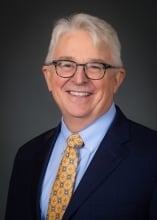
Jim Blew
Co-founder of the Defense Freedom Institute and assistant secretary of planning, evaluation and policy development for the Education Department from 2017 to 2020
I am optimistic that in the wake of the Biden-Harris administration’s management of FAFSA and the student loan portfolio, the incoming administration and Congress will agree on how to fix the broken Office of Federal Student Aid. That will require a new approach, perhaps located outside the department, that shields FSA’s operations from partisan agendas and changes the damaging incentives inherent to a performance-based organization that isn’t held accountable for financial performance. During those talks, I hope they can also align on policy reforms that will help all students access post–high school opportunities for a wide range of high-value career paths.
I’m worried that higher education institutions will misread the moment and try to stonewall efforts to hold them accountable when their students don’t get a good return on their investments or don’t repay their federal loans. If the higher ed lobby isn’t sincerely at the table, there’s a high risk that the resulting policy solutions will be less workable, or unworkable. There’s already a growing sentiment that the student loan portfolio has become a weapon of partisan politics. I wouldn’t test Congress’s patience, or there might be a severe reduction in the use of federal taxpayer funds to help our students afford postsecondary education.

Greg Lukianoff
President and CEO of the Foundation for Individual Rights and Expression
My highest hope during the second Trump administration is for Congress to pass a bill that defines student-on-student harassment consistently with the speech-protective definition set forth by the U.S. Supreme Court in Davis v. Monroe County Board of Education. Campus speech codes, however well intentioned, are routinely used to punish just about any speech that someone on campus doesn’t like. Until a federal judge vacated the Biden administration Title IX rules, the Education Department was forcing schools to use an unconstitutional definition of student-on-student harassment in both the Title IX and Title VI contexts. Properly applied, the Davis standard ensures that institutions protect students against actual discriminatory behavior as opposed to punishing students who merely express controversial viewpoints.
My greatest fear also involves possible legislation. Last Congress, the House of Representatives passed the unconstitutional Antisemitism Awareness Act. While antisemitic harassment is a serious problem on campuses, the AAA’s examples of antisemitism include statements critical of the state of Israel, which is core political speech protected by the First Amendment. Rather than resurrect the AAA, members of Congress can craft constitutional legislation that would address antisemitism on campuses by prohibiting harassment based on religion, confirming that federal law forbids discrimination based on ethnic stereotypes and codifying the Supreme Court’s definition of discriminatory harassment.
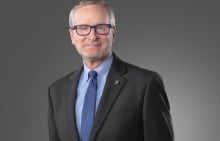
David Hoag
President of the Council for Christian Colleges & Universities
We aspire to a higher education system that is more affordable, more accessible and more focused on the lifelong value of higher education, particularly within Christian institutions. In 2025, the CCCU hopes that the incoming administration recognizes the invaluable role of faith-based colleges in the United States. These institutions provide educational opportunities and enhance community engagement to the benefit of the entire nation. I am concerned that the current approach seeks to measure higher education through purely transactional, financial metrics, overlooking the holistic value of a liberal arts degree.
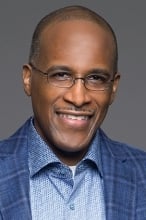
Walter Kimbrough
Interim president, Talladega College
My single highest hope is narrow. I hope that the Trump administration will continue to support the bipartisan HBCU fly-in each year in Washington, D.C., started in 2017 by Republicans. HBCUs are one of the few issues that receive overwhelming bipartisan support, and we hope that support continues not just with the meetings, but increased Title III and infrastructure funding, along with Pell Grant growth.
My greatest worry is broad. The attacks on the Department of Education overwhelmingly focus on K-12. But there would be significant harm done to college students and families if some of the proposed changes to the department actually take place. Instead of viewing higher education as the enemy, there is an opportunity to push higher education with resources to be more active in solving the nation’s problems.
Robert Eitel
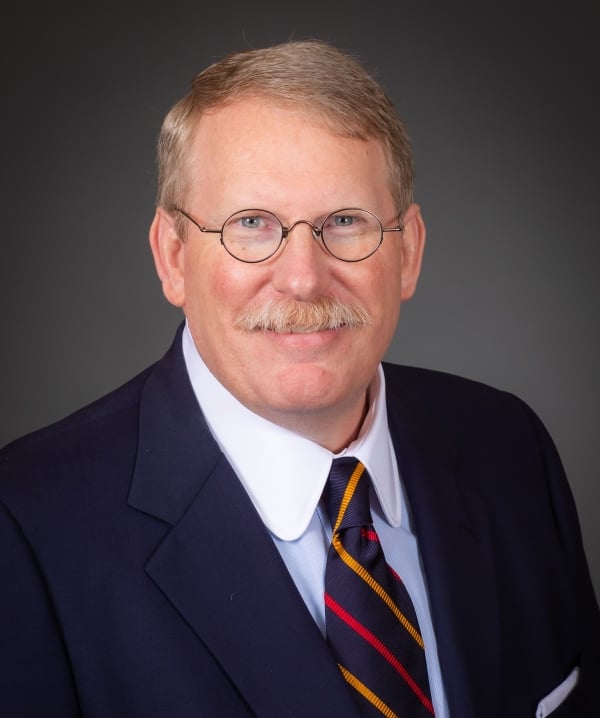
Co-founder of the Defense of Freedom Institute, senior counselor to the secretary of education from 2017 to 2020 and deputy general counsel from 2005 to 2009
It’s time to bring reason and sanity back to Title IX. In defiance of the law’s text, structure and history, the Biden administration sought to leverage the law to institutionalize gender ideology in schools, colleges and universities. With the 2024 Title IX regulations vacated by a judge in December, I am hopeful that a [Linda] McMahon Education Department will not only vigorously investigate violations of the 2020 Title IX regulations but also take steps to safeguard women’s and girls’ athletics and facilities in educational institutions that receive federal funds.
While expectations are high for the second Trump Education Department, my greatest fear is that the pace of Senate confirmations of crucial subcabinet positions will be too slow. Although the secretary sets the goals, expectations, pace and tone, it is in the principal offices run by assistant secretaries where the nitty-gritty work of policy development, rule making and grants management occurs. Long-term vacancies in these offices would severely disrupt the president’s education agenda.

Heather Perfetti
President of the Middle States Commission on Higher Education
We face an opportunity to bridge perspectives around critical federal policy in ways that advance important dialogue for the benefit of our students, our communities and our global status while ensuring that any regulatory shifts contain a return on investment.
Federal policy, however, must not inhibit higher education activities in ways that are misaligned with the needs of students or the realities of the shifts in the sector. The increasingly diverse student population faces challenges requiring institutions to honor the many individualized approaches that we know help students achieve success along their academic journey. Policies that lack flexibility and diminish innovative approaches will stray from the recognition that institutions hold unique spaces within their communities and are driven by distinct missions. Misaligned policies, however, will make the sector’s challenges more pronounced. Ensuring a deep understanding of today’s accreditation and working with us accreditors will be critical to inform federal policy, as accreditation remains one of the most powerful levers available for influencing change and assuring value in higher education.

Todd Wolfson
President of the American Association of University Professors
We are deeply concerned that the bombastic rhetoric coming from politicians and propagandists will be used as justification to ramp up political interference and censorship in higher education and deepen the ongoing crisis of declining academic freedom, ballooning student debt and access to education for working-class Americans. Without a thriving, inclusive higher education system that serves the public good, the majority of Americans will be excluded from meaningful participation in our democracy and this country will move backward.

Margaret Spellings
President and CEO of the Bipartisan Policy Center, secretary of education from 2005 to 2009
We are falling short. Many are questioning the value of a college degree. Too many families find higher education out of reach. And our workforce faces a skills mismatch, with more than one million unfilled job openings. No one is questioning that there is room for improvement in higher education. BPC has launched a Commission on the American Workforce, which will convene during 2025 and draft a bipartisan strategy for Congress to nurture talent, expand opportunity and invest in our workforce.
My highest hope is that we can make the future recommendations from our commission a reality as Congress looks at the Higher Education Act, Workforce Innovation and Opportunity Act and Perkins CTE Act.
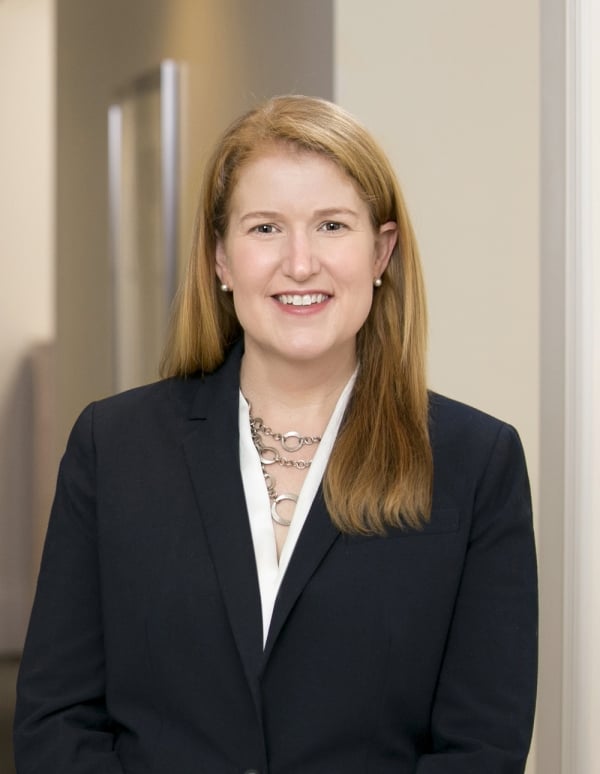
Brigid Harrington
Higher ed attorney
My highest hope for higher ed over the next four years is that colleges and universities will focus on the tangible benefits of education and tailor their approach to the current American workforce. What does that mean in 2025? Definitely more affordable options. Probably more remote and flexible options. More than likely addressing the needs of students who are not on a traditional post–high school path to a bachelor’s degree.
My greatest worry is that colleges will forget their educational mission in the midst of unprecedented pressure from Congress and the executive branch to bow to politics. Higher education has always been a bastion of the free exchange of ideas, and that should not change. Our students and affiliates are not wallflowers and should be encouraged to engage in robust debate of the issues and to not devolve those discussions into speech that is harassing or, frankly, uneducated.




